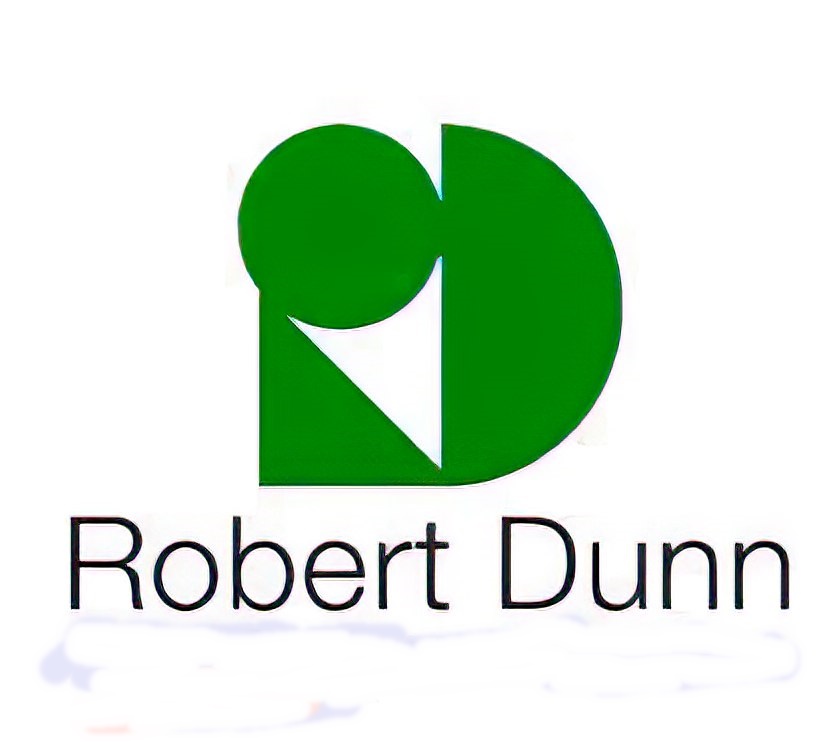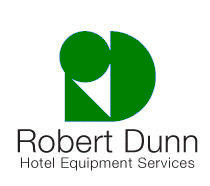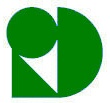Procurement Support Package
Operating Equipment (OS&E)
For International Hotel Projects
Procurement Support Package
Operating Equipment (OS&E)
For International Hotel Projects
Procurement Consultant
Operating Equipment (OS&E)
For International Hotel Projects
Support Package
- Preparation of OS&E Master-lists
- Products: Ideas Standards Specifications
- Guidance on: Brands Suppliers Manufacturers
Introduction
Working remotely, I offer a hands-on, private service, tailored to the needs of our Clients.
I help save time & money and help ensure that the correct quantity and standards of products are supplied to each international hotel project. My references include Hilton & Marriott.
In essence I provide an OS&E support package which enables the Clients team to manage their own procurement with the support of an experienced equipment procurement specialist.
This package includes: master-lists with quantities and product features, BOQs, product ideas and standards. I also provide advice on competitive international suppliers.
The Clients team is responsible for the tender process, samples orders, payments, delivery, installation and local activities.
Process in a nutshell.
First I review the plans and hotel operating policies and prepare the equipment lists with quantities using my unique master list system. I then prepare product standards (of key items), suggest brands, advise on suppliers and produce the bills of quantities (BOQs). My online product showcase is available to help with mood-boards.
Request an procurement support fee proposal

Send your request for a fee proposal to
robert@robertdunn.eu
Confirm details if available like:
- The number of guest rooms, restaurants, function and meeting rooms.
- The operator and standard of hotel.
- The location e.g. city, airport, resort etc.
- Opening date.
Area Questionaire
If more information regarding hotel configuration is available then download, complete and return the following area questionnaire:
Step1-2 Area questionnaire-New 2019 v2
Fixed Fee (for OS&E Package)
Relates to size and complexity of the project. Typical fees are between 2.5% and 4.5%
- Plan – Time Scope Budget
- Masterlists (OS&E) – Quantities and BOQs for tender
- Products – Guidance on Brand Standards Specs Green
- Suppliers – Guidance on Manufacturers Distributors for tender
BY CLIENT Tender Purchase orders, invoice payments, logistics and delivery coordination
Hidden
Presentation - OS&E
Robert Dunn OSE-Brochure Jan 2024
Presentation Robert Dunn- OS&E 2024 Jan Ver4
The Challenge
Don’t underestimate the complexity, diversity & quantity of equipment required for a new hotel.
Introduction
- Are you working on a new hotel project or resort?
- Perhaps you are a hotel owner, hotel operator, developer or local consultant.
- Still to purchase the operating supplies and equipment(OS&E)?
- Looking for products direct from factories at factory prices.?
Did You Know?
- The value of the operating equipment for large hotel projects can be many millions of Euros.
- New hotels often need over 4000 products, from over 50 suppliers, in many countries.
- Products must conform to international hotel quality and safety standards.
- Professional procurement will lead to significant savings.
Who is my service for?
International Hotel operators, owners, developers & procurement companies.
Client/strategic partner
My Clients often have a local team where the hotel is located. Clients include construction companies, logistics companies, developers, designers, FF&E/OS&E companies.
How do I charge?
Normally a fixed fee is agreed with Client.
Principles
- Complete Client confidentiality.
- No hidden costs or commissions from suppliers.
- Commitment to safety, quality and value.
Procurement in a Nutshell
- Preparation of equipment (OS&E) lists (over 4000 items) with quantities.
- Guidance on standards, suppliers & manufacturers .
- Assistance with tender for main OS&E of items imported ( tender by Client).
- Tender analysis.
- Budget estimates, time management.
- Ensure operators brand and supplier requirements are met .
- Client is responsible for placing orders, payments & logistics.
Web Based Procurement Service
My service is web based as projects, and stakeholders are usually in diverse locations.
Tendering (by Client)
- The selection of suppliers & products is normally through competitive tendering ensuring best quality and value for money.
- Local projects’ needs, terms and conditions are met, including delivery & installation dates.
- Pre-qualified suppliers are agreed with Client (normally 2 or 3 per main bid package).
- If project is to be fast-tracked (opening in less than 12 months) then single sourcing may be required.
- The Client’s and or Operator’s own suppliers are included in the tender process.
Online Showcase of Products .
- The showcase is exclusively for my five star hotel Clients.
- Helps Clients and operators in the selection process of key items.
- Presents some of best suppliers and manufacturers and over 2000 of the main products required for a new hotel. (Includes items that are high visibility, customer contact items and also critical equipment that is essential for the operation of hotel.
- Most of the items have five star hotel operator references and many have been used in projects I have been involved with.
- Registered Clients have access to the Showcase and can create their own ‘Project Moodboards’ for those items to be included in the tender process.
About Suppliers and Manufacturers.
- Provide high-quality, cost competitive products
- Reliable services.
- Green in manufacturing process in terms of water usage, energy efficiency, sustainability of materials and effect on environment.
- Most conform to ISO standards (9001 & 14001) & use western managed quality control systems.
- Proven history of successful projects.
About Products and Brands.
- Many products direct from international manufacturers.
- Conform to operator’s brand and product standards.
- Conform to international five star hotel standards.
- Conform to local & national standards, codes and regulations.
- Conform to fire, safety, health and hygiene and electrical standards BS EN ISO ANSI or local equivalent.
- Green in terms of water usage, energy efficiency, and recycling reusing.
- Balance of design, functionality and durability
About Robert Dunn
- Experienced procurement consultant.
- Based in UK and France.
- Over 30 years multi brand experience.
- Projects in EU, Middle East & Africa.
Benefits and Challenges
- Remote service for international projects.
- Many products direct from manufacturers.
- Owner’s save money.
- Operators improve product standards.
Strengths & Benefits
Challenges
- Don’t underestimate the complexity, diversity and quantity of equipment required for a new hotel.
- The value of the operating equipment can be many millions of Euros.
- Projects often need over 4000 products, from over 50 suppliers, in many countries.
- It is essential that products conform to international hotel quality and safety standards.
- Avoid the nightmare scenario of unsafe goods and serious over expenditure.
We offer
- Professional procurement leading to significant savings.
- Web based service.
- Available to work direct for Client.
- Flexible, private and personalised service.
- Goods delivered on time & within budget.
- Nothing forgotten or double counted.
- Best quality and strength for products used by hundreds of people.
Strengths.
- Thirty years of procurement experience.
- Extensive multi brand hotel procurement experience within an international multi cultural environment.
- References include Hilton International, Conrad, Viceroy Hotels, Starwood, Regent Hotels, Le Meridien, Jumeirah and Marriott.
- International five star hotel references in UK, Europe, Africa, UAE, India and China.
- Clients’ teams leverage my project and supplier knowledge.
- Vast network (over 500) of trusted pre qualified international suppliers, manufacturers and specialists.
- Product and brand expertise.
- Effective review of scopes leads to avoidance of expensive double or nil counts of purchases through
Benefits.
- Products conform to international hotel quality and safety standards.
- Hotel operators ensure consistent product brand standards across all their hotels.
- Hotel owners save many hundreds of thousands of dollars through effective procurement, buying direct from suppliers and manufacturers for the high value/volume packages..
- Quality products and value for money is ensured through competitive international tendering.
- Suppliers are pre-qualified with the best references.
- Client leverages my product and supplier knowledge, not found in a non specialist procurement department.
- Structure and control in terms of procurement process is ensured.
Hotel references
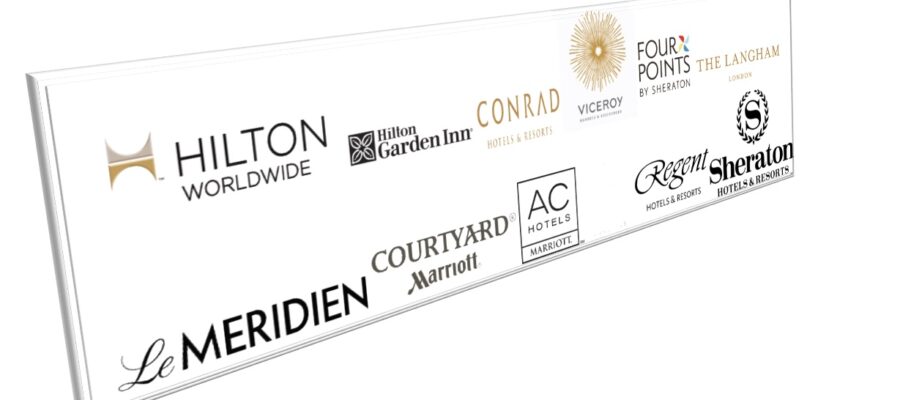
About Robert
- Experienced procurement consultant.
- Based in UK and EU.
- Over 30 years multi brand experience.
- Projects in UK, EU, Middle East & Africa.
Fees
For large projects only (>100 rooms).
Request an OS&E procurement support proposal.

Send request for fee proposal to robert@robertdunn.eu
Confirm basic details like:
- Number of guest rooms, restaurants, conference and banqueting rooms.
- The standard/type of hotel.
- Location e.g. city, airport, resort etc.
Quotation Service.
- Request a One-off Quote for project equipment (OS&E), direct from reputable suppliers.
- I charge a a fixed fee per quote depending on requirements e.g. 250 Euros per quote for an uncomplex quote.
- For a fee proposal send your quantities (BOQs) and specs to:
More information.
- Minimum order terms apply (quantity over 100 or value over Euro 1000).
- Client should forward to me: quantities (BOQs), specifications, operator’s preferred supplier, delivery address, invoice payment address and opening date.
- Trade discounts passed on to Client(buyer).
- Tendering service to multiple suppliers is also available.
- The quotations will be in the name of the Client (buyer).
- Where possible quotes are direct from manufacturer but sometimes through distributors.
- If Client (buyer) accepts the quote they then place their order, pay the invoice and organise logistics, delivery and installation.
- Final due diligence is by the Client.
- The supplier is solely responsible for the sale of the products and observing any responsibilities in respect to contract, information and customer rights.
- The contract (or order) is concluded only between the Client (buyer) and the supplier, should they (the buyer) choose to accept their offer.
Process
- The Client (buyer) should send me details by email including quantities (BOQs), operator’s preferred supplier, specifications, delivery address, invoice payment address and opening date..
- I will confirm to the Client (buyer) if I am able to organise the quote.
- Minimum quantities often apply. Normally over 100 rooms.
- I will review the documents and request any clarifications from the Client (buyer).
- I then send the BOQ and specs to the appropriate supplier.
- The supplier provides me with a quotation ex-works, addressed to the Client (buyer), with an indication of production, delivery schedule and warranty.
- I will review the offer and then send it to the Client (buyer).
- If the offer is acceptable by the Client (buyer) then they should request samples for approval before ordering.
- The supplier agrees (with the Client (buyer)) terms, payment procedures , warranty, production and delivery.
- The Client (buyer) places the purchase order, direct with the supplier ie the contract is between the Client (buyer) and the supplier.
- Payment procedures are implemented by Client (buyer) eg advance payment (if agreed), L/C, bank guarantees, payment bonds etc.
- Production begins. Inspection of goods at factory is by the Client’s QC team(if required).
- When the shipment is ready the supplier provides the Client (buyer) with documentation according to agreed terms (eg bills of lading, packing lists )
- The final payment is made by the Client (buyer) (according to the terms) to the supplier before shipment.
- When the goods are received by the Client (buyer) they should be checked by the Client (buyer). Any issues should then be followed up with the supplier.
How are fees calculated?
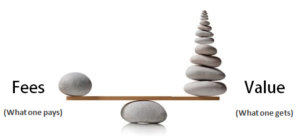
Fee relates to size and complexity of the project.
1 Initial consultation includes time plan, definition of scope, guidance on suppliers.
Product specs/standards, lists and quantities.
2 Assistance with tender process and analysis.
3 Payment of suppliers invoices and logistics coordination – by Client.
More information robert@robertdunn.eu
Information for buyers eg visitors/clients/members/users.
- Robert Dunn acts as an intermediary, and is not a party to the contract between the Buyer (eg Client, Visitor or Member) and the Supplier and will not have rights or obligations under it.
- The Supplier/Manufacturer is solely responsible for the sale of the products and observing any responsibilities in respect to contract, order terms and conditions, information and customer rights.
- The contract (or order) is concluded between the Buyer and the Supplier, should they (the Buyer) choose to accept their offer.
- Due diligence should be carried out by buyers to confirm that suppliers are financially secure, have international quality control processes in place, have good references and history, and products
have conformed to all appropriate hotel standards including fire, safety, electrical, food and hygiene standards with appropriate certification. - The Buyer should also confirm with the Supplier that the goods conform to appropriate local regulations and local hotel regulations eg fire, safety, electrical, food and hygiene with appropriate certification.
Benefits and Challenges
- Owners save money.
- Operators improve standards.
- Buy direct often at factory prices.
- Nothing forgotten or double counted.
- Global network of suppliers.
Strengths & Benefits
- Extensive multi brand hotel procurement experience within an international multi cultural environment.
- Vast network of trusted pre qualified international suppliers, manufacturers and specialists.
- Product and brand expertise.
Benefits.
- Clients leverage my product and supplier knowledge, not found in a non specialist procurement department.
- Cut out the middle man.
- I often save the hotel owner many hundreds of thousands of dollars through effective procurement, direct from suppliers and manufacturers for the large volume packages.
- Hotel operators ensure consistent product brand standards across all their hotels.
Fee proposal
Procurement (OS&E)
Send request for fee proposal to robert@robertdunn.eu
Request an OS&E procurement support proposal.

Send request for fee proposal to robert@robertdunn.eu
Confirm basic details like:
- Number of guest rooms, restaurants, conference and banqueting rooms.
- The standard/type of hotel.
- Location e.g. city, airport, resort etc.
Quotation Service.
- Request a One-off Quote for project equipment (OS&E), direct from reputable suppliers.
- I charge a a fixed fee per quote depending on requirements e.g. 250 Euros per quote for an uncomplex quote.
- For a fee proposal send your quantities (BOQs) and specs to:
More information.
- Minimum order terms apply (quantity over 100 or value over Euro 1000).
- Client should forward to me: quantities (BOQs), specifications, operator’s preferred supplier, delivery address, invoice payment address and opening date.
- Trade discounts passed on to Client(buyer).
- Tendering service to multiple suppliers is also available.
- The quotations will be in the name of the Client (buyer).
- Where possible quotes are direct from manufacturer but sometimes through distributors.
- If Client (buyer) accepts the quote they then place their order, pay the invoice and organise logistics, delivery and installation.
- Final due diligence is by the Client.
- The supplier is solely responsible for the sale of the products and observing any responsibilities in respect to contract, information and customer rights.
- The contract (or order) is concluded only between the Client (buyer) and the supplier, should they (the buyer) choose to accept their offer.
Process
- The Client (buyer) should send me details by email including quantities (BOQs), operator’s preferred supplier, specifications, delivery address, invoice payment address and opening date..
- I will confirm to the Client (buyer) if I am able to organise the quote.
- Minimum quantities often apply. Normally over 100 rooms.
- I will review the documents and request any clarifications from the Client (buyer).
- I then send the BOQ and specs to the appropriate supplier.
- The supplier provides me with a quotation ex-works, addressed to the Client (buyer), with an indication of production, delivery schedule and warranty.
- I will review the offer and then send it to the Client (buyer).
- If the offer is acceptable by the Client (buyer) then they should request samples for approval before ordering.
- The supplier agrees (with the Client (buyer)) terms, payment procedures , warranty, production and delivery.
- The Client (buyer) places the purchase order, direct with the supplier ie the contract is between the Client (buyer) and the supplier.
- Payment procedures are implemented by Client (buyer) eg advance payment (if agreed), L/C, bank guarantees, payment bonds etc.
- Production begins. Inspection of goods at factory is by the Client’s QC team(if required).
- When the shipment is ready the supplier provides the Client (buyer) with documentation according to agreed terms (eg bills of lading, packing lists )
- The final payment is made by the Client (buyer) (according to the terms) to the supplier before shipment.
- When the goods are received by the Client (buyer) they should be checked by the Client (buyer). Any issues should then be followed up with the supplier.
Information for buyers eg visitors/clients/members/users.
- Robert Dunn acts as an intermediary, and is not a party to the contract between the Buyer (eg Client, Visitor or Member) and the Supplier and will not have rights or obligations under it.
- The Supplier/Manufacturer is solely responsible for the sale of the products and observing any responsibilities in respect to contract, order terms and conditions, information and customer rights.
- The contract (or order) is concluded between the Buyer and the Supplier, should they (the Buyer) choose to accept their offer.
- Due diligence should be carried out by buyers to confirm that suppliers are financially secure, have international quality control processes in place, have good references and history, and products
have conformed to all appropriate hotel standards including fire, safety, electrical, food and hygiene standards with appropriate certification. - The Buyer should also confirm with the Supplier that the goods conform to appropriate local regulations and local hotel regulations eg fire, safety, electrical, food and hygiene with appropriate certification.
Partners
I often partner with developers, designers, owners, operators, FF&E fit-out companies, logistics companies and other consultants.
Send your details to robert@robertdunn.eu
References

Contact
EU
- Tel/Whatsapp:+33 (0)627336130
- robert@robertdunn.eu
UK
- Tel: +44 (0)7749 262637
- robert@robertdunn.co.uk
Terms and Policies
The information provided on this website does not, and is not intended to constitute professional advice. Instead, all information, content and materials available on this site are for general informational purposes only. Information on this website may not constitute the most up-to-date professional, legal or other information. This website contains links to other third-party websites. Such links are only for the convenience of the reader, user or browser. We do not recommend or endorse the contents of the third-party sites.
